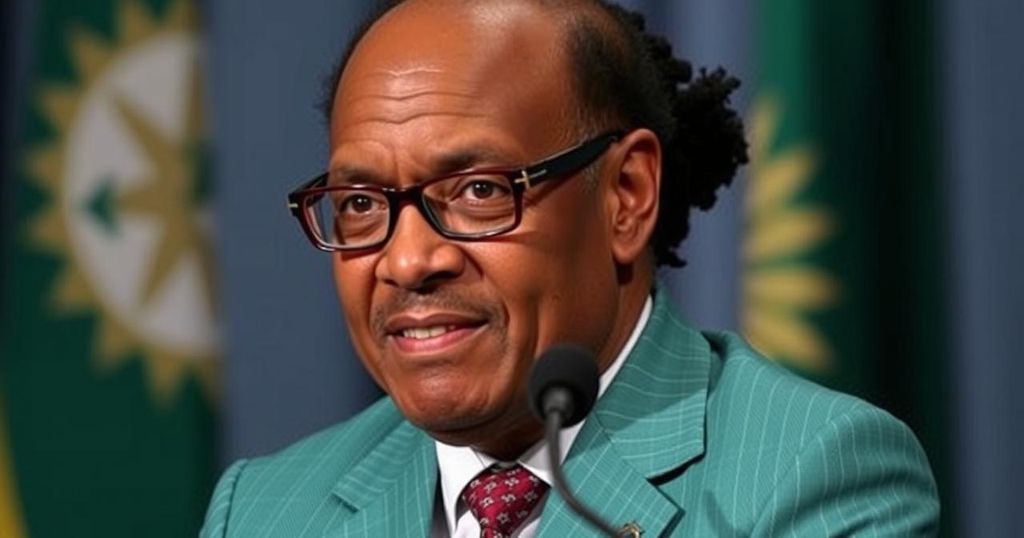Ahmed Hashi, a Kenyan analyst, claims the U.S. is interfering in AU election by blocking Raila Odinga’s candidacy. However, evidence suggests positively strengthened U.S.-Kenya relations under Ambassador Meg Whitman, contradicting allegations of meddling. Whitman has publicly supported both Ruto and Odinga and has focused on enhancing Kenya’s economic opportunities. The claims of U.S. interference lack credible backing, emphasizing the complexities of international diplomacy within Kenya’s electoral process.
The African Union (AU) is positioned for a pivotal election in February 2025, where it will appoint its fifth commission chairperson, succeeding Moussa Faki Mahamat, who has served since March 2017. Notably, Odinga, a prominent opposition leader from Kenya, has formally announced his candidacy, drawing support from several African leaders. His ascent, however, has been clouded by allegations made by Kenyan diplomatic analyst Ahmed Hashi, who asserts that the United States is interfering in the elections to prevent Odinga from attaining the position.
The claims made by Hashi, particularly in an interview on “Citizen TV,” suggest that U.S. Ambassador to Kenya, Meg Whitman, is actively blocking Odinga’s candidacy due to a supposed alignment with his main opponent, Mahamoud Ali Youssouf of Djibouti. However, these allegations are unfounded as no substantial evidence supports them. In fact, the U.S. has fostered closer diplomatic relations with Kenya, a fact underscored by President William Ruto’s visit to the White House, where Kenya was designated a non-NATO ally. Whitman’s tenure in Nairobi has focused on enhancing Kenya’s economic development, particularly in the tech sector, and she has publicly supported both Ruto and Odinga.
Whitman has adhered to her diplomatic obligations, maintaining a balanced approach by advocating for economic growth while also critiquing leadership when warranted. In her own words, she voiced disapproval over President Ruto’s unfounded accusations against the Ford Foundation regarding civil protests. Moreover, Whitman’s support for Odinga’s candidacy has been publicly acknowledged, illustrating the nuanced nature of U.S.-Kenya relations. Despite previous tensions, it is evident that Odinga has been met with diplomatic support from the U.S., which has included invitations to global political engagements.
In sum, the allegations of U.S. meddling, primarily propagated by Hashi, lack credible backing and misrepresent the U.S. role within Kenyan and regional politics. While the relationship between Odinga and the U.S. has been complex, it retains a foundation of mutual respect and ongoing dialogue, particularly as Kenya navigates its electoral landscape towards the AU commission chairpersoncy.
The African Union is a continental organization comprising 55 member states, primarily aimed at promoting unity and cooperation among African nations. The upcoming election for its commission chairperson holds significant implications for both regional stability and development policies across the continent. In this context, various candidates, including notable political figures like Raila Odinga of Kenya, vie for leadership roles that will influence AU’s strategic direction. Amidst this political landscape, allegations of foreign interference, particularly from the United States, have surfaced, raising concerns about the integrity of the electoral process. This highlights broader themes of national sovereignty and geopolitical relations in Africa, particularly surrounding U.S. diplomacy in Kenya.
The assertion by Ahmed Hashi implicating the United States in meddling with the AU elections is baseless and unfounded. The evidence available indicates a commitment from the U.S. to foster positive diplomatic relations with Kenya, regardless of internal political dynamics. The complexity of U.S.-Kenya relations, characterized by collaboration and critique, suggests that the allegations should be viewed in the context of ongoing dialogue rather than interference. Thus, as the AU elections approach, it remains imperative to assess claims critically and maintain focus on the candidates’ qualifications and diplomatic engagements.
Original Source: www.voanews.com






